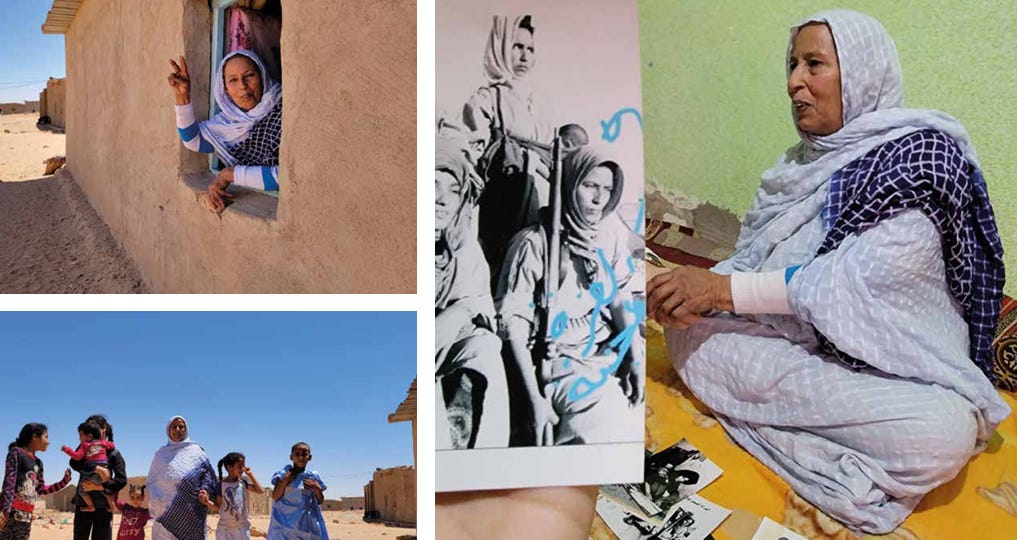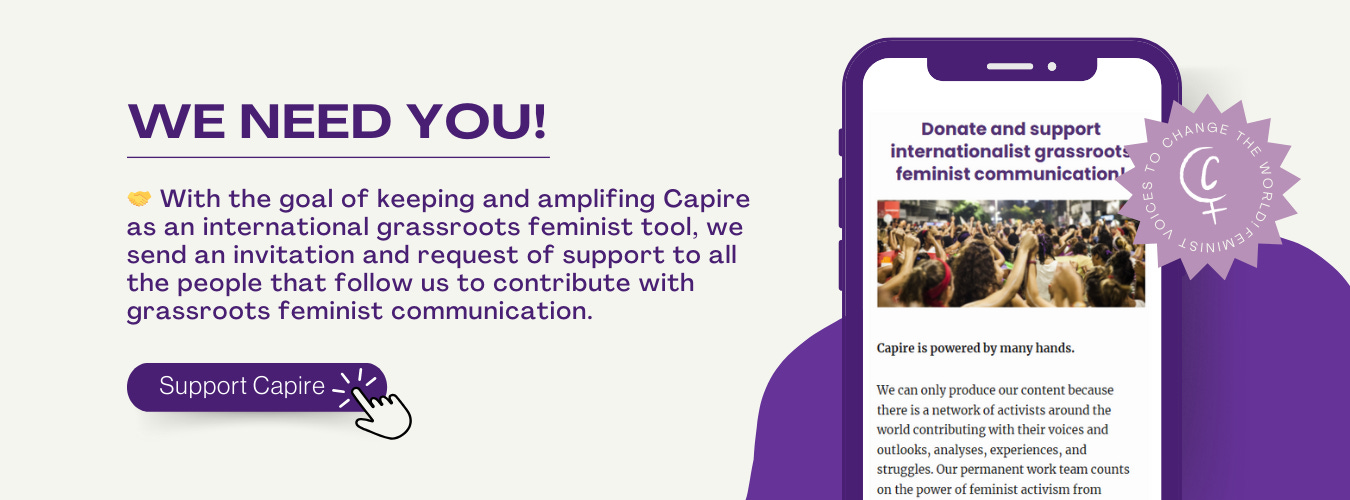Women’s Struggle in Western Sahara: Poster Gallery, 6th WMW International Action, and a First-Hand Account by a Sahrawi Fighter | Issue #5
Si desea recibir el boletín en español, haga clic aquí. Si vous désirez recevoir le bulletin en français, cliquez ici. Se deseja receber o boletim em português, clique aqui
👋 Hello, sisters of the world! Check out our new content:
🎴 Poster Gallery for the Self-Determination of the Peoples and the Liberation of Western Sahara
Marking the opening activity of the 6th International Action of the World March of Women, we published a poster gallery in solidarity with the people of Western Sahara. It included 14 posters produced by women and collectives from seven different countries. The opening ceremony of the 6th Action was held on March 8th at Sahrawi refugee camps in Tindouf, Algeria, when WMW women from several parts of the world came together to affirm the defense of the peoples for self-determination and the end of wars. The Sahrawi people resists the occupation of their territory by Morocco and firmly struggles for sovereignty.
✊ Yildiz Temürtürkan: “Sahrawi Women Are Leading International Grassroots Feminism”
During the launch of the 6th International Action, at the headquarters of the Sahrawi Women’s National Union, Yildiz Temürtürkan, the coordinator of the International Secretariat of the World March of Women, delivered a powerful speech about the key role Sahrawi women’s grassroots feminist struggle play in building internationalism. Yildiz stated that the feminist struggle is fundamental today because “all wars are interrelated and interconnected, from Ukraine to Western Sahara, from Palestine to Syria. What does it mean for us? We need to connect and articulate our struggles for feminism, for the liberation of women, but also for the liberation of the peoples.” Read her full speech here.
🏕️ The Tents Along the Way of Sahrawi Militant Aiza Azna Zreibih
The symbol of the 6th International Action is the feminist solidarity tent. As the launch statement reads, “tents represent disaster capitalism, war, displacement and migration, but they also symbolize shelter for communities, traditional knowledge and wisdom and resistance in many cultures. In this sense, we published an excerpt from the account “This Is a Long Story,” by Aiza Azna Zreibih, featured in the book El Amal, historia de mujeres saharauis [El Amal: Stories of Sahrawi Women], published by Editorial Universidad de Guadalajara (2022). As Aiza tells her story, she describes the life of Sahrawi women who have been displaced from their territories in Western Sahara and have been forced to live in refugee tents in Algeria for nearly 50 years.
Read also: “I’ve Seen Women”: A Poem by Fatma Al Ghalia
👉 Visit Capiremov.org for more content on the feminist struggle to change the world!
Share this email! Sign up to our newsletter and follow us on social media (@capiremov). We need everyone's support to promote and expand the Capire portal!
Newsletter | WhatsApp | Telegram | info@capiremov.org
Facebook | Twitter | Instagram | YouTube | Spotify








